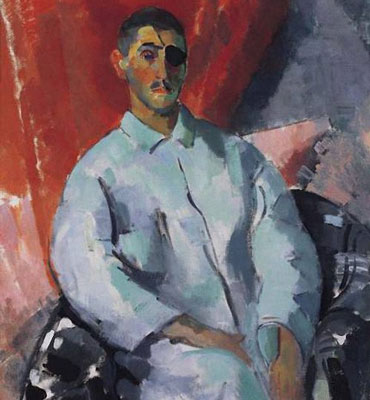English at Leicester
Passions of War
 Passions of War is an international research network, funded by the Arts and Humanities Research Council (AHRC).
Passions of War is an international research network, funded by the Arts and Humanities Research Council (AHRC).
The Network brings together EU and international participants, representing a range of academic disciplines and professional backgrounds, to investigate the influence of war, from the early modern period to the end of the Second World War, on constructions of gender and sexual practices, and how these constructions and practices have, in turn, conditioned the ways in which wars are waged, mediated, felt and understood.
- The Principal Investigator for the project is Professor Philip Shaw, English, University of Leicester.
- The Chief Investigator is Dr Cornelis Van der Haven, Literature Department, Ghent University.
About
The Passions of War AHRC Research Network brings together EU and international participants, representing a range of academic disciplines and professional backgrounds, to investigate the influence of war on constructions of gender and sexual practices, and how these constructions and practices have, in turn, conditioned the ways in which wars are waged, mediated, felt and understood.
A distinguishing feature of the Network is the re-examination of standard accounts of war, gender and sexuality in the light of alternative, emergent and marginalised histories. An emphasis on the discovery of new facts about the history of gender, sexuality and war, as well as on innovative approaches to the interpretation of historical data, is central to the project’s cross- and multi-disciplinary rationale.
Across the two-year duration of the project, participants will take part in a series of themed day-long interactive workshops (2 x one-day + 1 x two-day events) focusing on the presentation and evaluation of relevant new research findings.
The workshops will invite participants to ask:
- How, and in what ways, have attitudes to gender and sexuality in relation to war changed over time?
- Were attitudes to non-normative gender identities and sexual practices during wartime more or less tolerant at different stages in the past?
- How do questions of gender and sexuality bear on questions of military and civilian identity?
- In what ways are expressions of non-normative sexuality and alternative forms of gender identity repressed or enabled during wartime?
- To what extent does war challenge, modify or support normative family relations, friendships between the sexes, and traditional conceptions of love?
- Outcomes from these workshops will be published as essays and articles in a variety of formats, including a special edition of an academic journal adhering to the principles of ‘open access’.
Participants will also engage in dialogue with key non-academic beneficiaries, ranging from museum professionals to schools and members of the armed services.
Additional materials arising from the project, such as blogs and teaching materials, will be made available to these beneficiaries through a range of media, including blogs, posters, podcasts, webinars and contributions to themed museum displays in London and Ghent.
The Network consolidates informal links with the following research groups and organisations:
- Literature and War research group (University of Leicester)
- Group for Early Modern Studies (GEMS, Ghent University)
- Amsterdam Centre for Comparative Emotion and Sensory Studies (ACCESS, VU University)
- Museum Dr Guislain (Ghent)
- National Army Museum (London)
Past events
24 March 2017, University of Leicester
'Writing Military Lives: Gender, Sexuality and the Armed Forces' workshop.
16 September 2016, National Army Museum, London
‘Resistances’ workshop.
19-20 February 2016, University of Leicester
‘Intimacies’ and ‘Spaces’ workshops.
20 June 2015, Museum Dr Guislain, Ghent
‘Identities’ workshop.